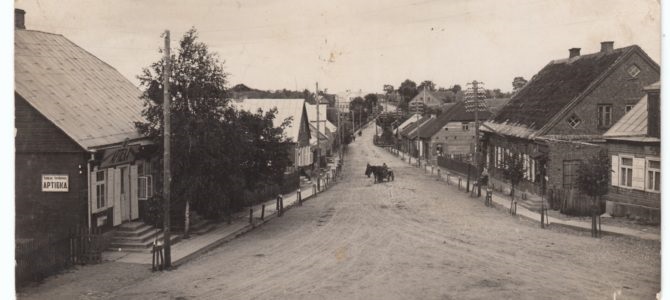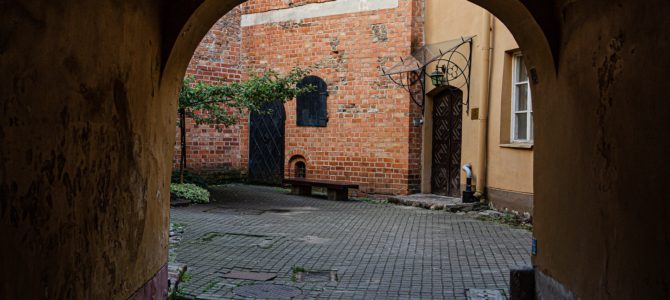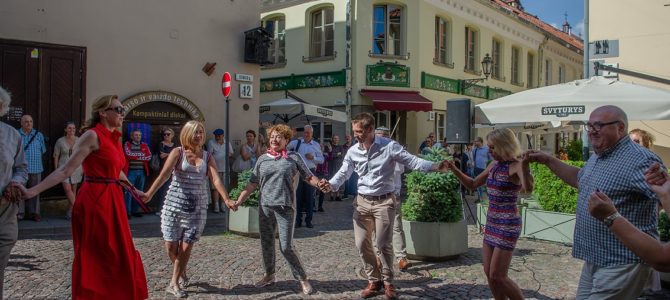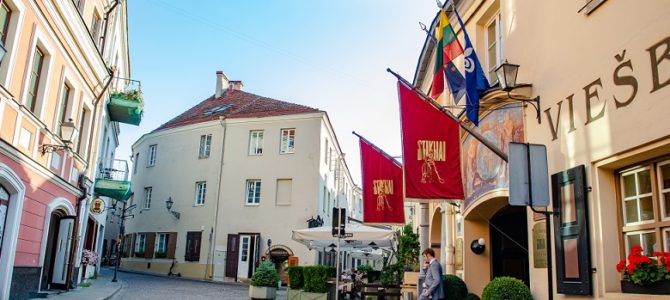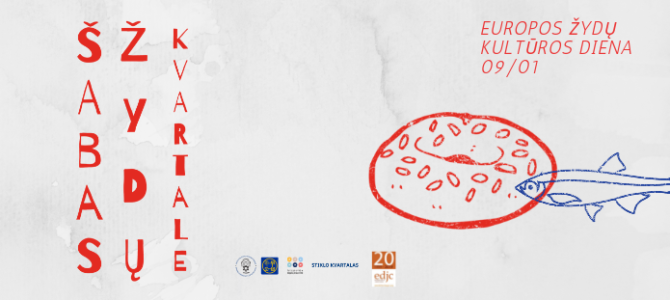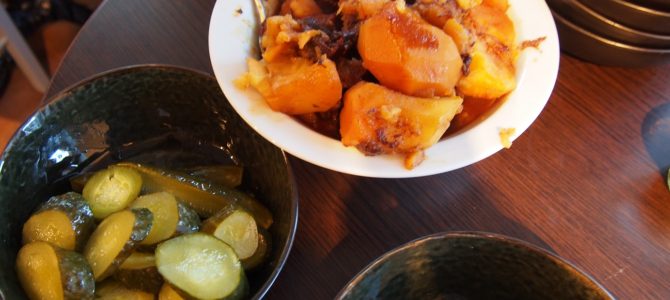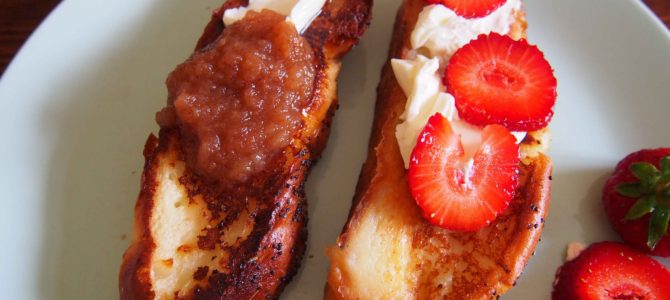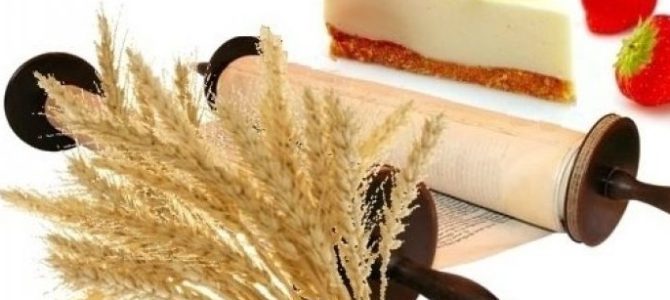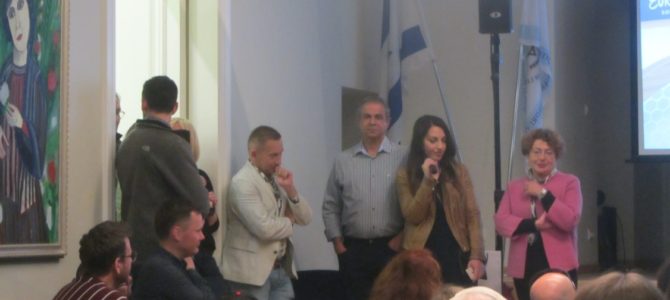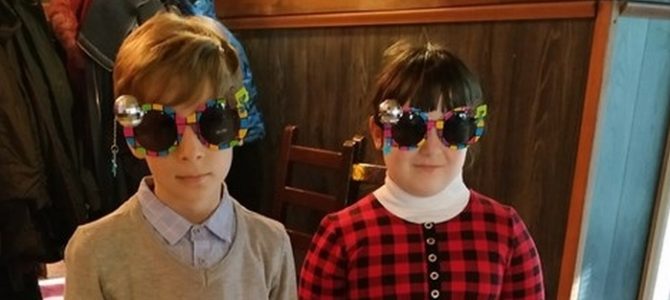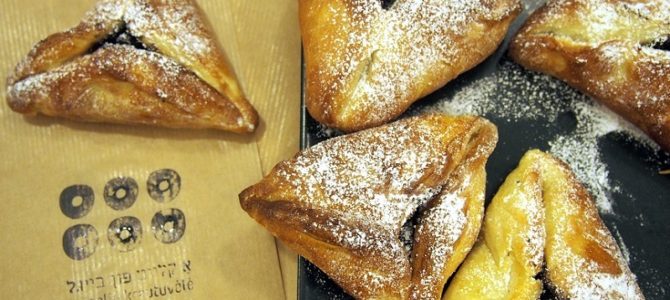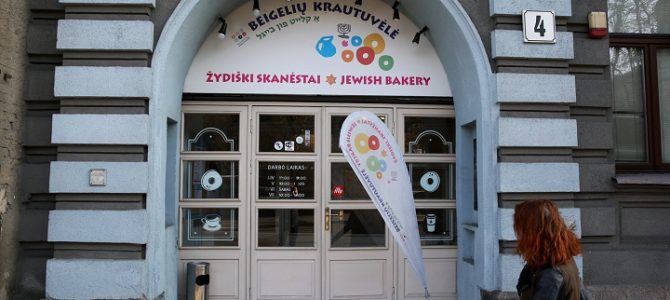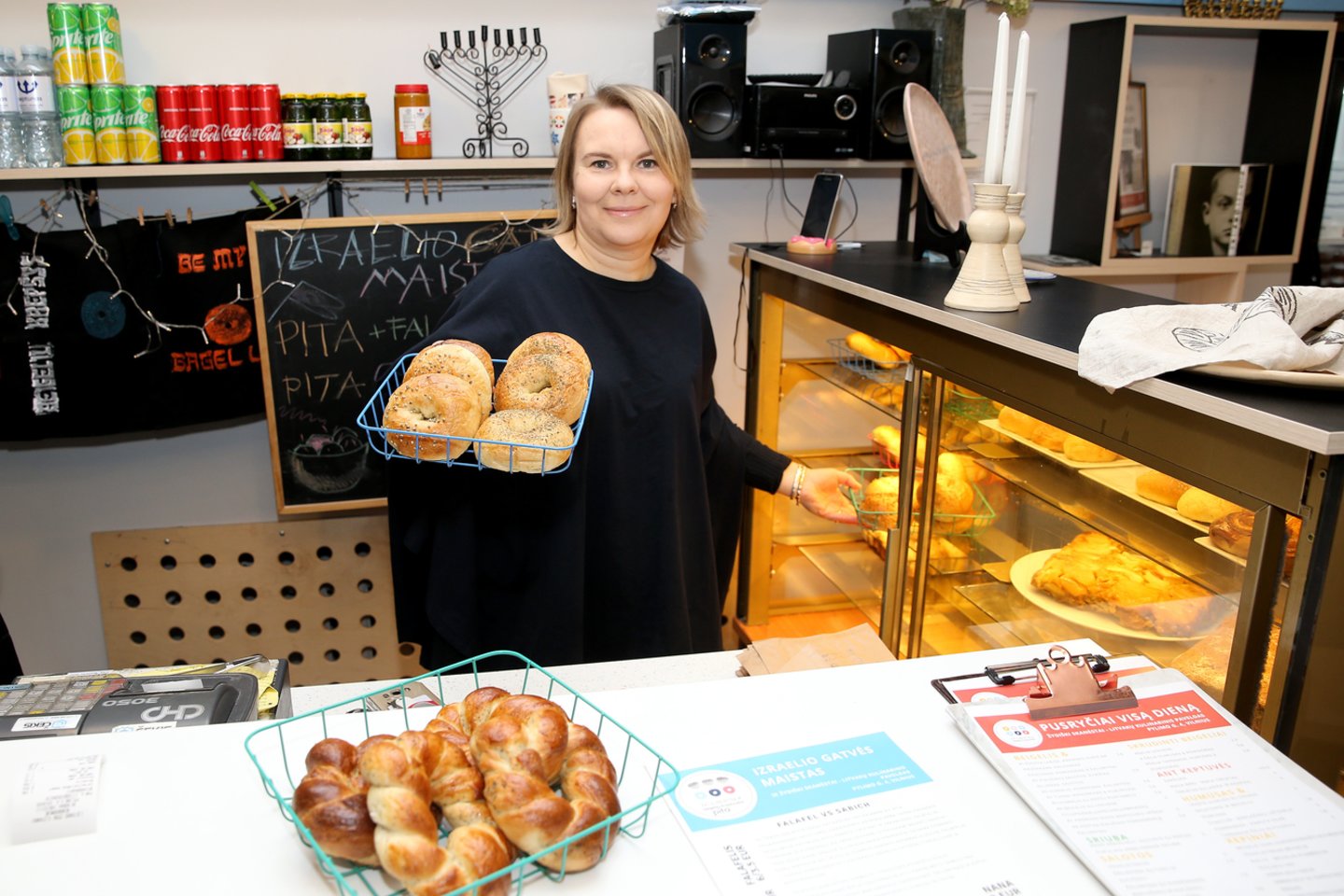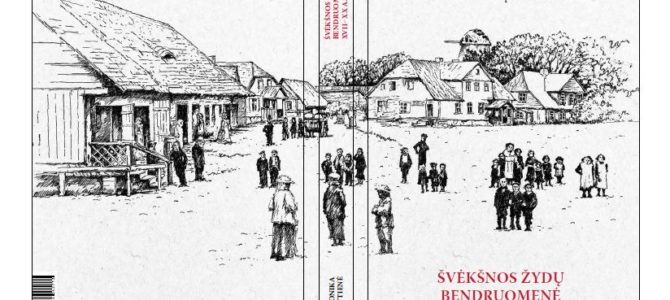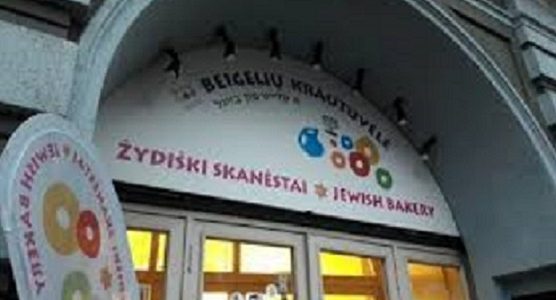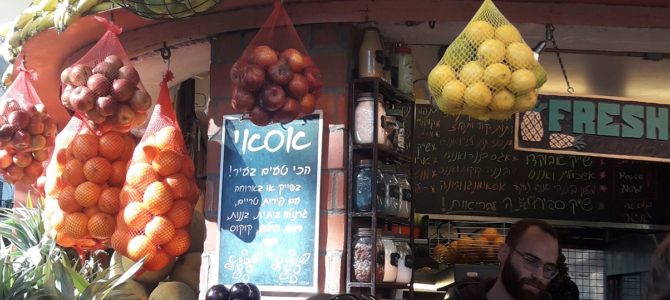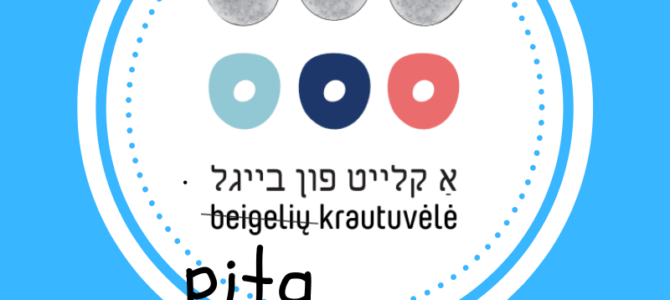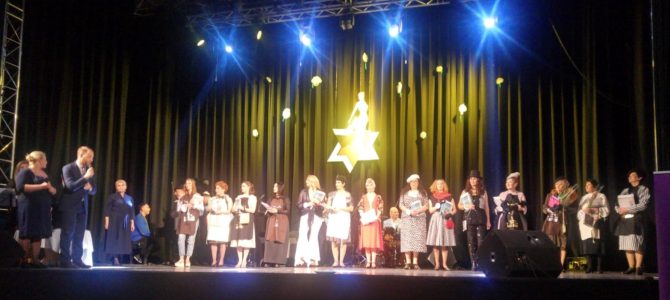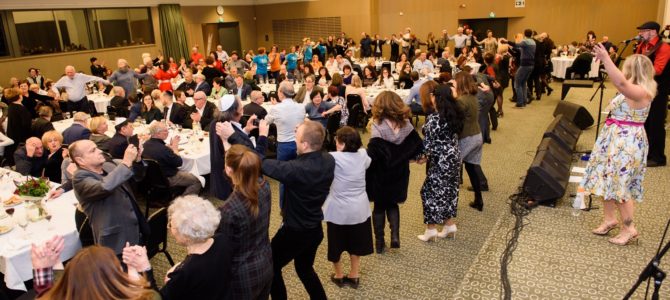Bagel Shop Café cooks have been sharing some of the secrets of Litvak cooking this summer with the managers of a small restaurant in Merkinė, Lithuania, called Šilo kopa. They’ve been making bagels, herring and pflaumen-tzimmes together.
Pflaumen-tzimmes is a stew made of plums and beef often made for the Sabbath table and Rosh Hashanah.
Bagel Shop Café cook Riva remembers this dish well and still makes it according to a simple recipe: about 1.5 kilograms of beef (from the forequarter), bone, about 15 to 20 plums, about 1.5 kg of potatoes and 1 onion, which is later removed. Laurel leaves aren’t required, only salt. The flavor is enhanced by several tablespoons of caramelized sugar added at the end.
The beef is boiled with the onion for about 2 hours, the onion is removed, the plums are added for about an hour and later the potatoes. When everything has been boiled sufficiently, add 3 to 4 tablespoons of liquefied caramelized sugar.
